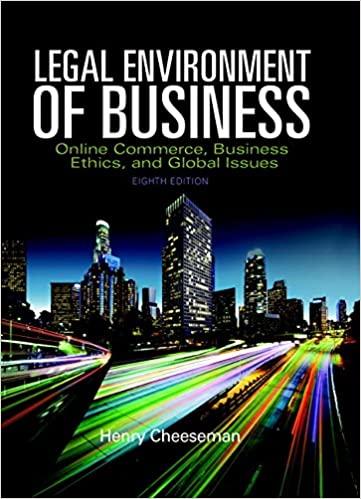Question
When Navjot Singh joined Royal Dutch Shell in 2003, the company was facing an extraordinary challenge: the rate at which Shell's engineers were retiring meant
When Navjot Singh joined Royal Dutch Shell in 2003, the company was facing an extraordinary challenge: the rate at which Shell's engineers were retiring meant that the global firm needed to double the number of new recruits it hired from 2,697 in 2005 to 5,440 by 2006 and to nearly 8,000 in 2008. Yet at the time, Shell was not considered an employer of choice. The global oil and gas company needed to project a new imagefast! Says Singh, "In the same way marketers know they need to advertise to be a market leader, HR had to know how to create an employer brand. Marketing is the only way to ensure customers buy products. It was also the only way to ensure Shell got the best people coming to us first."
Wait! Why is Shell's HR guy talking about marketing? As both an HR and a marketing expert, Singh sees a powerful synergy between the two. "I'm 50% a marketerthe rest is HR, communications, and recruitment," says Singh. "But I'm an HR person, really." Singh's official job title, however, is Global Marketing Manager, Recruitment and Global HR Communications Manager, Shell (UK), a title and position like no other. Having come to Shell from DaimlerChrysler, where he served as the marketing director, Singh initially started out as vice president of customer relationship management but quickly joined the HR team when he recognized Shell's emerging need for new talent and the immense potential for him to use classic marketing techniques to help the company achieve its objectives. His vision, skill sets, and experience were a perfect match for the company's situation.
So in Singh's mind, addressing the company's need for new talent meant building a brand as an employer, which in turn meant creating a cohesive message. But Shell's global recruiting approach was anything but cohesive. "At the time we had 1,200 recruitment systems, 35 recruitment companies, and 400 executive search companies working for us," he recalls. "I attended a careers event at Cambridge University where there were three Shell stands beside each otherone from the UK, one from Malaysia, and another from Nigeria. This was a fragmented approach and tough for candidates to understand." Shell needed to create a unified outreach program if it was going to meet its need for numbers while fulfilling its desire for a global talent pool. The company recruits from among 90 different nationalities each year because it recognizes the benefits of cultural diversity.
Singh and his team set about applying various marketing techniques to the recruitment process, which have since resulted in an 80 percent cut in recruitment costs, a 20 percent reduction in the time to hire new staff, and a very real claim to being the top employer in its market segment. In fact, Shell has won 80 awards for its unique HR strategy. "I think it's important to make sure that employer branding activities are efficient and effective and that you have the right tools and processes, but also that it's competitively positioned from a cost perspective," notes Singh. "I also think you need to look at it in terms of satisfaction, with the employer value proposition which you create. You need to ensure that there is a high satisfaction level amongst your staff, that they are motivated and have pride in working for your company."
Having come so close to putting itself in danger of not attracting enough skilled candidates, Shell intends to continue running its recruitment program just like any other branding effort, thus ensuring that it has the right human resources to deliver on its promises and achieve worldwide success. Singh believes Shell is typical of many firms, noting, "In the future, companies will have to apply for skilled people to work for them rather than candidates applying to work at an organization. HR must still realize the strategic value it can bring."
Questions
- What functions of HRM are similar to marketing functions? How can thinking about "marketing" a company's jobs improve the strategic focus of HR personnel?
- If you were planning to use marketing strategies to "brand" a company as an employer of choice, what are some of the factors you would consider?
- Do you agree with Singh's statement that in the future, companies will have to apply for skilled people to work for them rather than candidates applying to work at an organization? Why or why not?
Step by Step Solution
There are 3 Steps involved in it
Step: 1

Get Instant Access to Expert-Tailored Solutions
See step-by-step solutions with expert insights and AI powered tools for academic success
Step: 2

Step: 3

Ace Your Homework with AI
Get the answers you need in no time with our AI-driven, step-by-step assistance
Get Started


